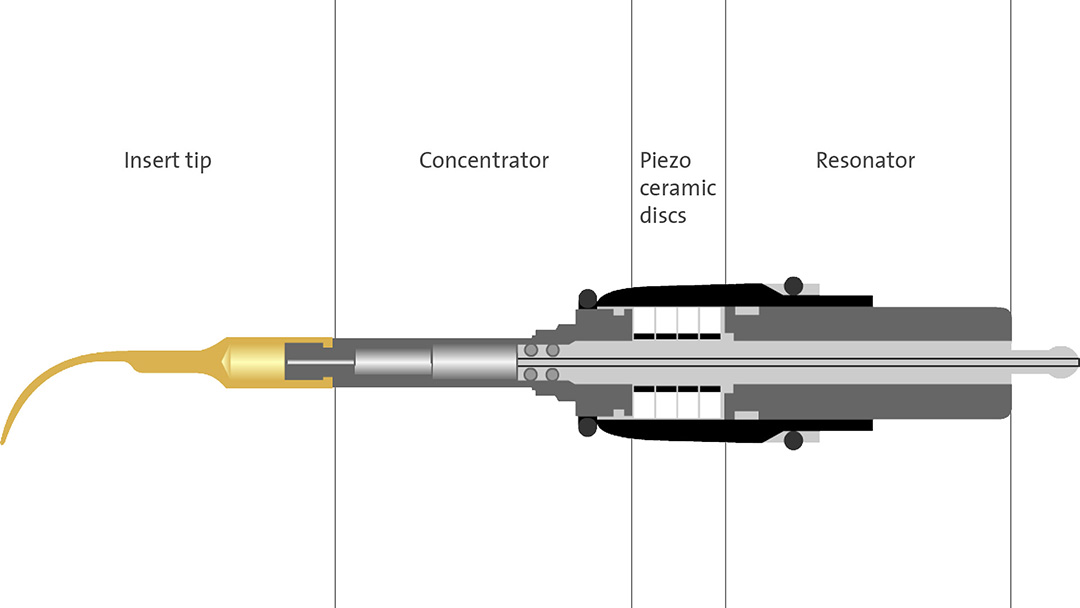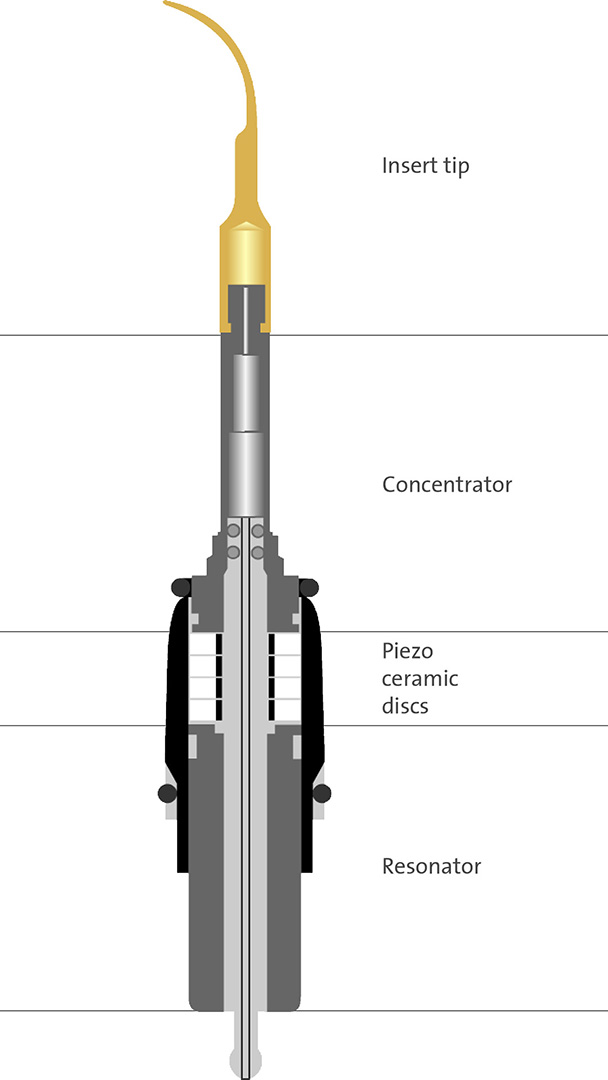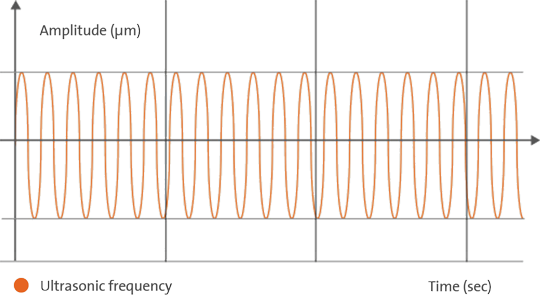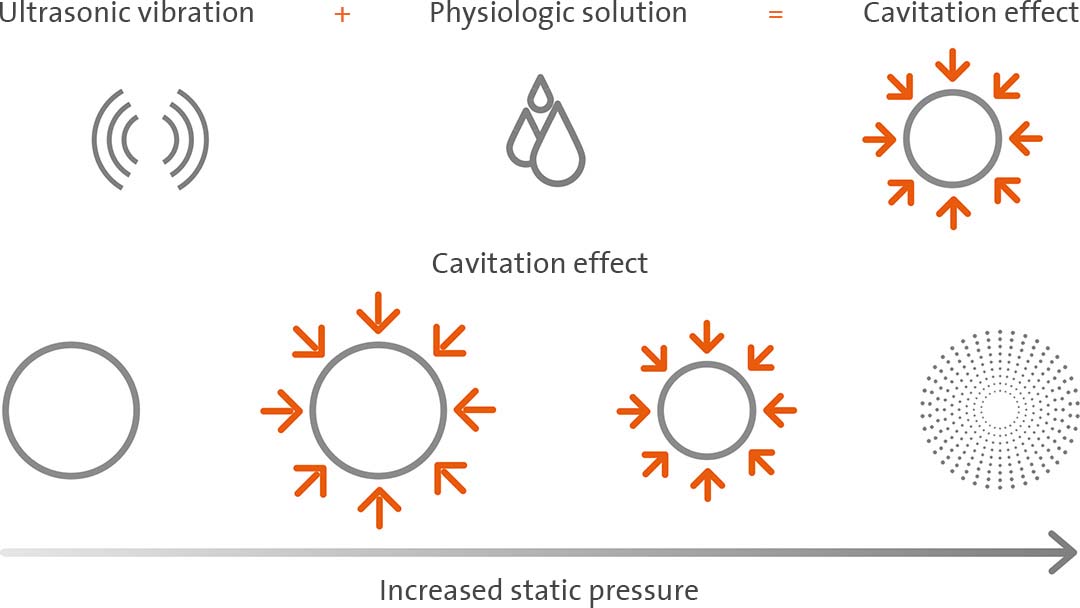- 1982: Mectron invented the first ultrasonic transducer made of titanium – now a worldwide standard – in order to better transmit ceramic discs deformation into a tip linear movement
- Big step ahead in handpiece reliability and resistance
- Oscillation frequency: around 28.500 Hz (range 24.000-36.000 Hz)
- Device performance are electronically controlled by a dedicated built-in feedback system
- Max comfort for the patient thanks to the feedback system
- 1982: Mectron invented the first ultrasonic transducer made of titanium – now a worldwide standard – in order to better transmit ceramic discs deformation into a tip linear movement
- Big step ahead in handpiece reliability and resistance
- Oscillation frequency: around 28.500 Hz (range 24.000-36.000 Hz)
- Device performance are electronically controlled by a dedicated built-in feedback system
- Max comfort for the patient thanks to the feedback system
-
ULTRASOUND SYSTEM: WAVE SHAPE GENERATED BY ULTRASOUNDS
- High frequency electrical impulses from the electronic module to the ceramics discs
- Mechanical deformations of the 4 ceramic discs conducted into a concentrator in titanium
- Generation of a micrometric/linear movement of the insert
- Oscillations not visible to the naked eye (vibration width between 0,006 and 0,1 mm.)
- Oscillations amplitude are related to the device setting, inserts metal flexibility degree, insert morphology and irrigation flow level
- Advanced devices allow to operate on the ultrasonic oscillation amplitude thanks to the electronic system
-
THE ULTRASONIC CAVITATION
- Creation of gas micro-bubbles inside the liquid treated by ultrasounds because of a rapid changes of pressure that cause the formation of bubbles where the pressure is relatively low
- Implosion of the bubbles generating an intense shockwave which leads to bleeding reduction (hemostasis effect of blood vessels), biofilm disintegration and antibacterial effect (endo)
-
THE ULTRASONIC CAVITATION
- Creation of gas micro-bubbles inside the liquid treated by ultrasounds because of a rapid changes of pressure that cause the formation of bubbles where the pressure is relatively low
- Implosion of the bubbles generating an intense shockwave which leads to bleeding reduction (hemostasis effect of blood vessels), biofilm disintegration and antibacterial effect (endo)









